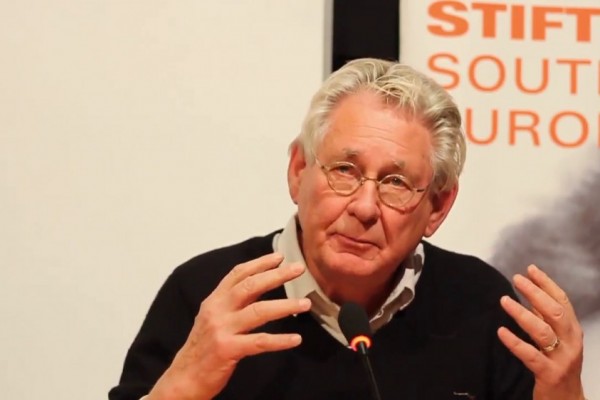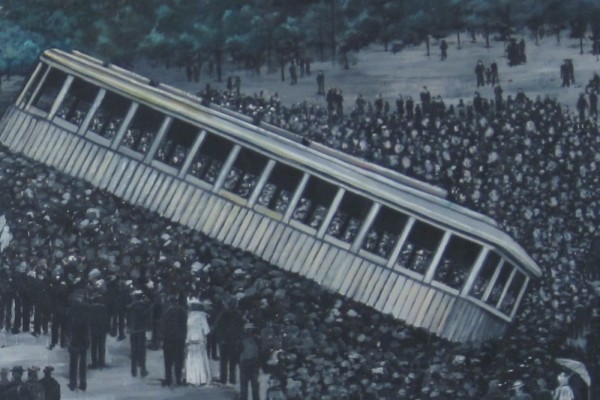Ontario labour: Fight or flee?

Photo courtesy of NOW Magazine
It is no exaggeration to say that Ontario has elected the most right-wing government in its history, one that is far more to the right than the Mike Harris government of the 1990s. While both governments belong to the same socially conservative, neoliberal strand, the Ford government is far more populist and connected to far-right, white-supremacist fringe groups, with far more negative implications for racialized people who make up the majority of exploited and marginalized workers in Canada’s most populace province.
Like Harris, Ford has wasted no time in launching a wide-ranging attack on workers’ gains, beginning with rolling back the long-anticipated $15 minimum wage, which was to take effect in January 2019. Other gains made as part of Bill 148 (two paid sick days, equal pay for temporary, casual, and part-time employees, emergency leave days, scheduling shift protections, etc.) are all on the chopping block — and this is only the beginning.
Rest assured, this government will be coming after much more still, including moving Ontario toward a so-called “right to work” jurisdiction. Appeals to our Charter rights ring hollow to a government that has demonstrated, in its attack on democracy in the City of Toronto, a willingness to invoke the “notwithstanding clause” to achieve its goals.
Contrary to the 1990s, however, there are no signs on the horizon of labour mobilizing for any significant fightback. It seems as though labour is united only on doing nothing (or very little, to be fair). It’s not as though labour isn’t engaged in the growing fightback against the Ford agenda, as witnessed by its mobilization for and participation in the October 15 Day of Action to save Bill 148 — but this is well below what is needed to produce a real impact on this government and the overall neoliberal austerity juggernaut.
Despite the divisions that existed during the anti- Harris fightback in the 1990s, the labour movement at that time took the lead in organizing unionized workers, as well as others in our communities, to engage in a broad-based fightback that saw rotating city shutdowns. In the process, hundreds of thousands of workers took to the streets against Harris’s austerity agenda. The alliances built between labour and community organizations continued to function as the basis of the fightback campaign even years later, after internal labour-movement divisions prematurely shut down the “Days of Action” in favour of an electoral strategy of supporting the NDP (which in the long run proved much less effective in blunting the sharp edge of the neoliberal agenda).
Labour must see itself as a political working-class movement acting on an advanced political program. Such a program must also be unequivocally antiracist and anti-fascist, in word and in deed. Unity around such a program will push unions to cease to be institutionalized bureaucracies and to reclaim their space as working-class fighting organizations.
Contracting out its political movement role to the NDP has proven short-sighted at best, and now it seems that labour is abandoning its activist fightback role to the Fight for $15 and Fairness campaign. While the F15&F campaign is more than worthy of support, it is inadequate for the long run, and by no means a replacement for the political program and organizing work that labour ought be leading at this juncture. But in order to lead in this way, labour must, among other things:
- Stop cannibalizing our own, and put our resources toward organizing the unorganized.
- Move from defensive to offensive battles, and unite around a bold, radical, working-class political program for Ontario.
- Use resources on deep organizing in communities across the province, including confronting the rise of far-right white-supremacist groups.
- Be prepared to fight an unconventional battle with capital and its representatives in government in Ontario.
Let us be clear: today’s attacks on the working class are even greater and more dangerous than what we saw with Harris and company in the 1990s. Hence, the question we must ask is not whether Ontario trade unions are ready to fight as they fought during the Harris years, but rather: are they ready to fight harder than they did back then?
Sadly, the fight ahead is going to require much more, and the stakes are going to be even higher, but from what I can see, we may be on the verge of fighting less and losing more.
Hassan Husseini is a negotiator with the Public Service Alliance of Canada and a member of Unifor. He also teaches Political Science at Carleton University and is a member of CUPE 4600 (for identification purposes only).
This article appeared in the Fall 2018 issue of Canadian Dimension (An Unjust Justice System).










